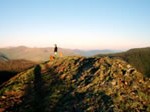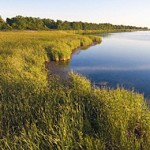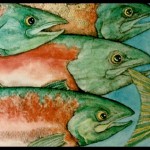Charitable Giving Program
Black Chicken Host is committed to conservation and sustainability. Because we want to protect the environment and be good stewards, we have established a charitable giving program.
We donate a portion of the income we receive from our customers to reputable conservation groups. In addition to donating to the groups below, we would like to hear from you: What conservation- or sustainability-oriented non-profits do you support?
Organizations marked with an asterisk are suggestions from our readers.
We want to help protect ecosystems everywhere, not just in our back yard; thus, our list stretches from ocean to ocean. The homesteading and sustainability community is incredibly diverse politically, religiously, and philosophically; however, we all agree on the importance of protecting nature, and of finding more sustainable ways to conduct our lives.
We feel the organizations here are meritous and deserve our support; we welcome any feedback you may have.
The organizations listed directly below have either already received donations, or are on the list for future donations, while the “under review” list at the bottom contains organizations we are reviewing for potential future giving.
 Michigan Wildlife Conservancy– The Michigan Wildlife Conservancy is dedicated to the preservation of Michigan’s diverse habitats. We are not alone in believing that the disappearance of habitat is a critical problem. We address the problem in Michigan with a unique approach. We don’t lobby for more government regulation. With the exception of the Bengel Wildlife Center, we don’t seek to own or manage lands. We simply provide the technical and financial assistance that landowners and managers need to restore and maintain wildlife habitat on their own land.
Michigan Wildlife Conservancy– The Michigan Wildlife Conservancy is dedicated to the preservation of Michigan’s diverse habitats. We are not alone in believing that the disappearance of habitat is a critical problem. We address the problem in Michigan with a unique approach. We don’t lobby for more government regulation. With the exception of the Bengel Wildlife Center, we don’t seek to own or manage lands. We simply provide the technical and financial assistance that landowners and managers need to restore and maintain wildlife habitat on their own land.
 The Nature Conservancy – We’re working with you to make a positive impact around the world in more than 30 countries, all 50 United States and your backyard. The Nature Conservancy is the leading conservation organization working around the world to protect ecologically important lands and waters for nature and people. We address the most pressing conservation threats at the largest scale.
The Nature Conservancy – We’re working with you to make a positive impact around the world in more than 30 countries, all 50 United States and your backyard. The Nature Conservancy is the leading conservation organization working around the world to protect ecologically important lands and waters for nature and people. We address the most pressing conservation threats at the largest scale.
 Sustainable Works – Sustainable Works is a non-profit environmental education organization and a project of Community Partners. Our mission is to foster a culture of sustainability in cities, colleges, and businesses. We accomplish this by providing hands-on, interactive, educational experiences, serving as a liaison between governments, institutions, businesses and individuals and fostering community development.
Sustainable Works – Sustainable Works is a non-profit environmental education organization and a project of Community Partners. Our mission is to foster a culture of sustainability in cities, colleges, and businesses. We accomplish this by providing hands-on, interactive, educational experiences, serving as a liaison between governments, institutions, businesses and individuals and fostering community development.
 Montana Wilderness Association – Concerned with protection and preservation of Montana’s remaining wild lands and naturally functioning ecosystems. Since 1958, the spirited people of the Montana Wilderness Association have worked tirelessly to protect Montana’s wilderness, wildlife habitat, and traditional recreation opportunities.
Montana Wilderness Association – Concerned with protection and preservation of Montana’s remaining wild lands and naturally functioning ecosystems. Since 1958, the spirited people of the Montana Wilderness Association have worked tirelessly to protect Montana’s wilderness, wildlife habitat, and traditional recreation opportunities.
 The Audubon Society – Audubon’s Mission: To conserve and restore natural ecosystems, focusing on birds, other wildlife, and their habitats for the benefit of humanity and the earth’s biological diversity. A powerful combination of science, education and policy expertise combine in efforts ranging from protection and restoration of local habitats to the implementation of policies that safeguard birds, other wildlife and the resources that sustain us all—in the U.S. and Across the Americas.
The Audubon Society – Audubon’s Mission: To conserve and restore natural ecosystems, focusing on birds, other wildlife, and their habitats for the benefit of humanity and the earth’s biological diversity. A powerful combination of science, education and policy expertise combine in efforts ranging from protection and restoration of local habitats to the implementation of policies that safeguard birds, other wildlife and the resources that sustain us all—in the U.S. and Across the Americas.
For more than a century, Audubon has built a legacy of conservation success by mobilizing the strength of its network of members, Chapters, Audubon Centers, state offices and dedicated professional staff to connect people with nature and the power to protect it.
 The Great Lakes Renewable Energy Association -founded in 1991 “to promote the design, construction, manufacture, marketing, sales, use and education of the general public in the practices of renewable energy sources in the Great Lakes Bioregion,” and to help other 501(c)(3) organizations achieve these goals. Our focus since then has been to promote, educate and advocate for: Solar, wind, hydro, biomass and other clean, sustainable energy technologies; Energy efficient materials and practices; Passive solar building design; Public awareness of alternative fuel vehicles; and Distributed generation utilizing clean fuels particularly hydrogen.
The Great Lakes Renewable Energy Association -founded in 1991 “to promote the design, construction, manufacture, marketing, sales, use and education of the general public in the practices of renewable energy sources in the Great Lakes Bioregion,” and to help other 501(c)(3) organizations achieve these goals. Our focus since then has been to promote, educate and advocate for: Solar, wind, hydro, biomass and other clean, sustainable energy technologies; Energy efficient materials and practices; Passive solar building design; Public awareness of alternative fuel vehicles; and Distributed generation utilizing clean fuels particularly hydrogen.
 Great Lakes Protection Fund – The Fund’s mission is to identify, demonstrate, and promote regional action to enhance the health of the Great Lakes ecosystem. The Great Lakes Protection Fund supports groups of innovative individuals who combine their strengths to produce a healthier Great Lakes ecosystem. These teams identify opportunities where targeted work can produce tangible improvements, and they explore new technical, legal and practical approaches to sustaining the natural resources of the region.
Great Lakes Protection Fund – The Fund’s mission is to identify, demonstrate, and promote regional action to enhance the health of the Great Lakes ecosystem. The Great Lakes Protection Fund supports groups of innovative individuals who combine their strengths to produce a healthier Great Lakes ecosystem. These teams identify opportunities where targeted work can produce tangible improvements, and they explore new technical, legal and practical approaches to sustaining the natural resources of the region.
 The Sierra Club – Protects land where endangered species and threatened ecosystems exist. Since 1892, the Sierra Club has been working to protect communities, wild places, and the planet itself. We are the largest and most influential grassroots environmental organization in the United States. John Muir (1838-1914) was America’s most famous and influential naturalist and conservationist, and founder of the Sierra Club.
The Sierra Club – Protects land where endangered species and threatened ecosystems exist. Since 1892, the Sierra Club has been working to protect communities, wild places, and the planet itself. We are the largest and most influential grassroots environmental organization in the United States. John Muir (1838-1914) was America’s most famous and influential naturalist and conservationist, and founder of the Sierra Club.
 The Wilderness Society – The Wilderness Society’s mission is to protect wilderness and inspire Americans to care for our wild places. The Wilderness Society is the leading American conservation organization working to protect our nation’s public lands, the 635 million acres collectively owned by the American people and managed by our government. From well-known icons to hidden gems, these lands provide us all with clean air and water; abundant wildlife; havens for recreation, learning, and solitude; and a foundation for a healthy planet. They are also important sources of renewable energy and vital natural resources that must be managed wisely.
The Wilderness Society – The Wilderness Society’s mission is to protect wilderness and inspire Americans to care for our wild places. The Wilderness Society is the leading American conservation organization working to protect our nation’s public lands, the 635 million acres collectively owned by the American people and managed by our government. From well-known icons to hidden gems, these lands provide us all with clean air and water; abundant wildlife; havens for recreation, learning, and solitude; and a foundation for a healthy planet. They are also important sources of renewable energy and vital natural resources that must be managed wisely.
 Ocean Conservancy – Here at Ocean Conservancy, we believe it’s time to look beneath the surface to see where the health of our planet really begins. It’s time to recognize the source that sustains us day to day with the food we eat, the water we drink, and the air we breathe…to discover that all living things are connected to the ocean. It’s time to understand that going green starts with living blue. It’s time to start a sea change.
Ocean Conservancy – Here at Ocean Conservancy, we believe it’s time to look beneath the surface to see where the health of our planet really begins. It’s time to recognize the source that sustains us day to day with the food we eat, the water we drink, and the air we breathe…to discover that all living things are connected to the ocean. It’s time to understand that going green starts with living blue. It’s time to start a sea change.
 Hawai’i Wildlife Fund – is a non-profit organization dedicated to the conservation of Hawaii’s native wildlife through research and education. We are educators, conservationists, researchers, naturalists, communities, volunteers and donors devoted to the conservation of Hawaii’s fragile marine ecosystem and its inhabitants.
Hawai’i Wildlife Fund – is a non-profit organization dedicated to the conservation of Hawaii’s native wildlife through research and education. We are educators, conservationists, researchers, naturalists, communities, volunteers and donors devoted to the conservation of Hawaii’s fragile marine ecosystem and its inhabitants.
 The Illinois Conservation Foundation * – The role of the Illinois Conservation Foundation and its partners is to preserve and enhance our precious natural resources by supporting and fostering ecological, educational, and recreational programs for the benefit of all citizens of Illinois and for future generations to come.
The Illinois Conservation Foundation * – The role of the Illinois Conservation Foundation and its partners is to preserve and enhance our precious natural resources by supporting and fostering ecological, educational, and recreational programs for the benefit of all citizens of Illinois and for future generations to come.
 Adopt-a-Stream Foundation – The Adopt A Stream Foundation (AASF) was established as a private non profit 501(C)(3) corporation in 1985. Its adopted mission is “to teach people how to become stewards of their watersheds.” It evolved from an “Adopt A Stream Program” established in 1980 by Tom Murdoch while he was working for Snohomish County’s Planning Department. “At that time,” Murdoch says, “we were trying to get people interested in taking care of local creeks and stimulate their interest in managing land-use in the surrounding watershed…the surrounding land that drained into their creek.” After scrounging up some support dollars, Murdoch set up a small “Adopt A Stream Grant Program” to be used as a “carrot” to attract schools and community groups.”
Adopt-a-Stream Foundation – The Adopt A Stream Foundation (AASF) was established as a private non profit 501(C)(3) corporation in 1985. Its adopted mission is “to teach people how to become stewards of their watersheds.” It evolved from an “Adopt A Stream Program” established in 1980 by Tom Murdoch while he was working for Snohomish County’s Planning Department. “At that time,” Murdoch says, “we were trying to get people interested in taking care of local creeks and stimulate their interest in managing land-use in the surrounding watershed…the surrounding land that drained into their creek.” After scrounging up some support dollars, Murdoch set up a small “Adopt A Stream Grant Program” to be used as a “carrot” to attract schools and community groups.”
![]() The Wildlands Conservancy * – The Wildlands Conservancy owns and operates California’s largest nonprofit nature preserve system. This preserve system includes 12 magnificent landscapes spanning over 145,000 acres of diverse mountain, valley, desert, river and ocean front properties. The Wildlands Conservancy also funded the largest conservation land gift to the American people in U.S. history – over 560,000 acres.
The Wildlands Conservancy * – The Wildlands Conservancy owns and operates California’s largest nonprofit nature preserve system. This preserve system includes 12 magnificent landscapes spanning over 145,000 acres of diverse mountain, valley, desert, river and ocean front properties. The Wildlands Conservancy also funded the largest conservation land gift to the American people in U.S. history – over 560,000 acres.
The following organizations are under review:
Grand Prairie Friends of Illinois * – Preserving and restoring natural communities in east-central Illinois and promoting an understanding and appreciation of natural resources.
